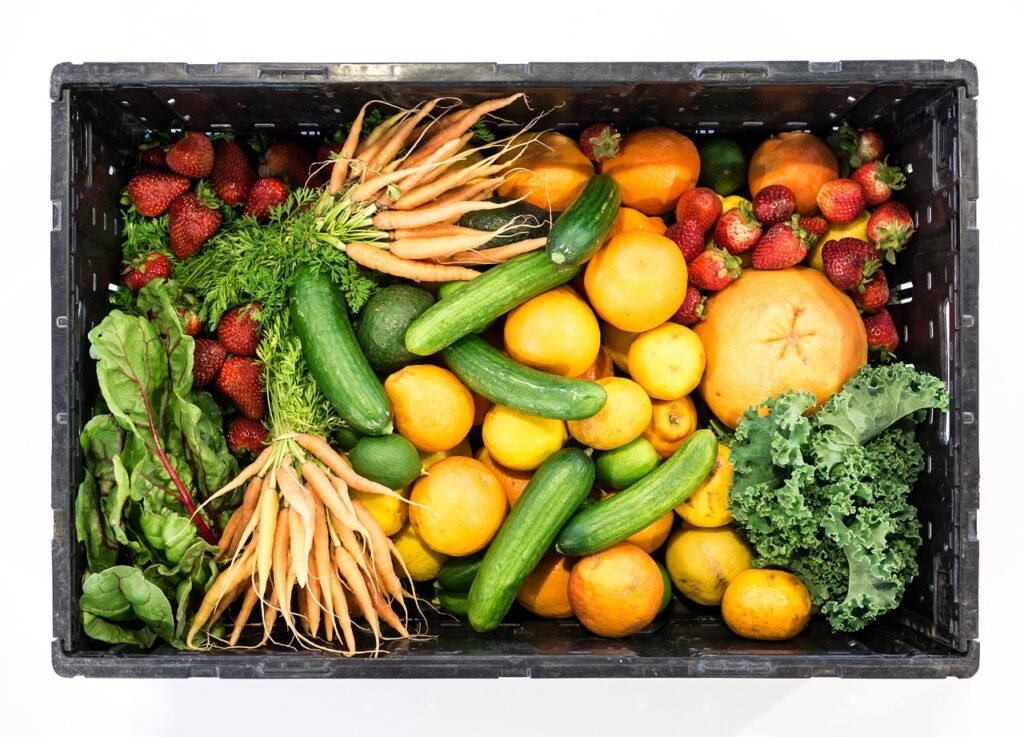Embracing Greece’s seasonal fruits and vegetables isn’t just about enjoying fresh and flavorful produce; it’s also an opportunity to support sustainable practices, embrace local culture, and enhance your well-being. While supermarkets might tempt you with out-of-season imports and frozen alternatives, aligning your meals with nature’s calendar offers undeniable benefits. Here’s why eating in-season foods matters and how you can easily adopt this wholesome practice.
Why Seasonal Eating Matters
1.Environmental Benefits
Seasonal eating reduces the carbon footprint of transporting imported goods and minimizes the energy used in storing or artificially ripening produce.
2. Better Flavor and Nutrition
Freshly harvested fruits and vegetables have peak flavor and retain more nutrients compared to those stored or transported over long distances. For instance, biting into a crisp apple from Zagora or a juicy peach from Naousa, freshly picked during its season, offers a taste you simply can’t replicate out of season.
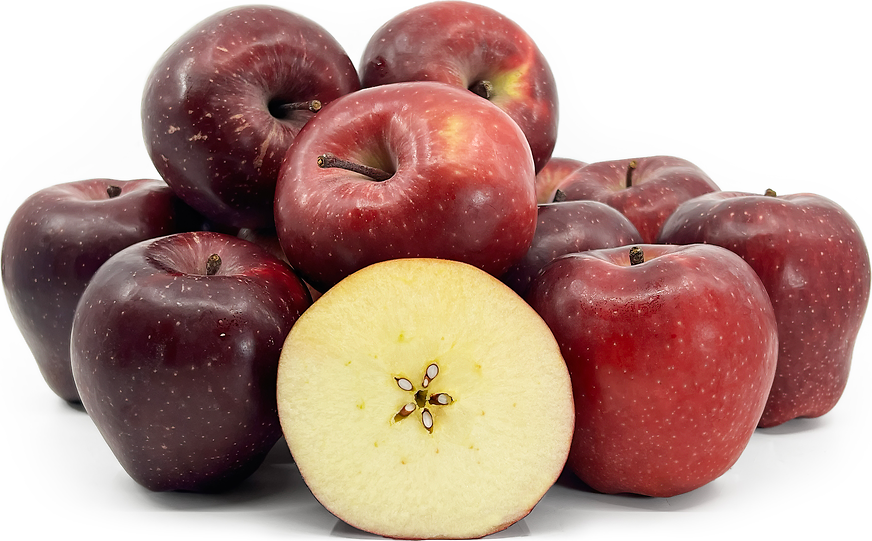

Image Credit: acn.com.gr
3. Cost-Effectiveness
Seasonal produce is more abundant, which makes it cheaper. Buying locally grown figs of Vravrona or mandarins from Chios during their harvest season is easier on your wallet.
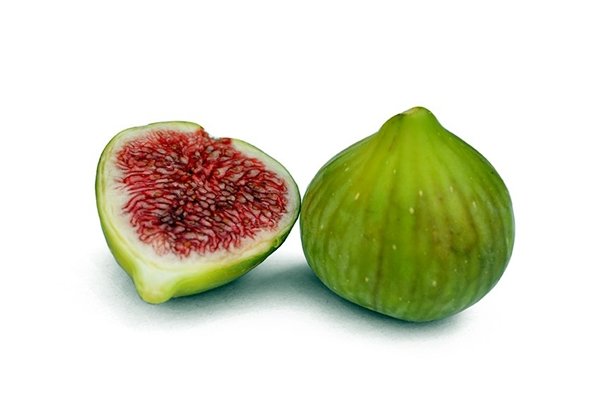
Known for their exceptional quality, these figs are delightfully sweet and flavorful, boasting a deep violet hue with green-yellow undertones. They are slightly wide and larger in size, making them perfect for both fresh enjoyment and processing. Royal Markopoulo Figs are harvested from early August through late September. Image Credit: atticafigs.gr

Chios Mandarin, the oldest Greek variety, is a product of Protected Geographical Indication (PGI). It is considered superior and more refined compared to the equally flavorful “Chios-type” mandarins, which thrive in sunny, warm regions of Greece. These are typically available in markets starting in November, while the authentic Chios Mandarin ripens a little later. Image Credit: tasteatlas.com
4. Supporting Local Farmers
By choosing in-season products like Tsakonian eggplants from Leonidio or potatoes from Nevrokopi, you contribute to Greece’s agricultural economy and sustainability efforts.

The renowned Tsakonian eggplant, cultivated in the Leonidio area, holds a Protected Designation of Origin (PDO) and is one of the region’s most prized products. Each year, during the last ten days of August, the Municipality of Leonidio hosts the Eggplant Festival at the picturesque port of Plaka. Image Credit: religiousgreece.gr
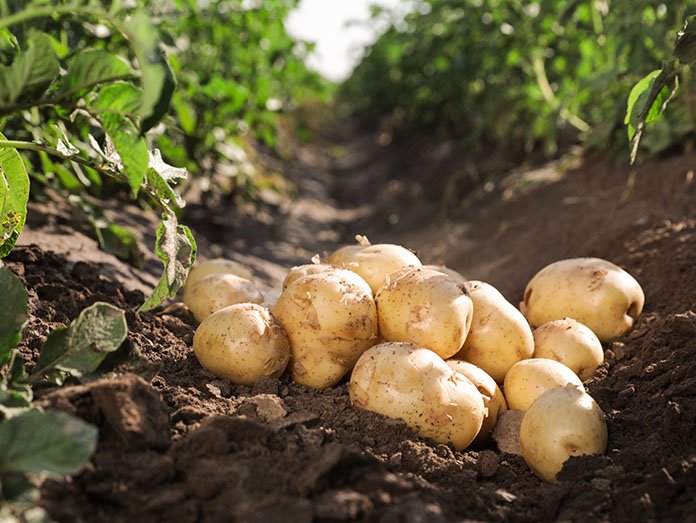
Seasonal Produce in Greece
Below, you’ll find a handy table detailing the fruits and vegetables available in Greece during each month. This guide is designed to help you make informed, sustainable, and health-conscious choices when shopping. By aligning your purchases with the natural growing seasons, you’ll enjoy maximum flavor, nutrition, and freshness while supporting local farmers and the environment.
Seasonal Fruits and Vegetables Guide for Greece
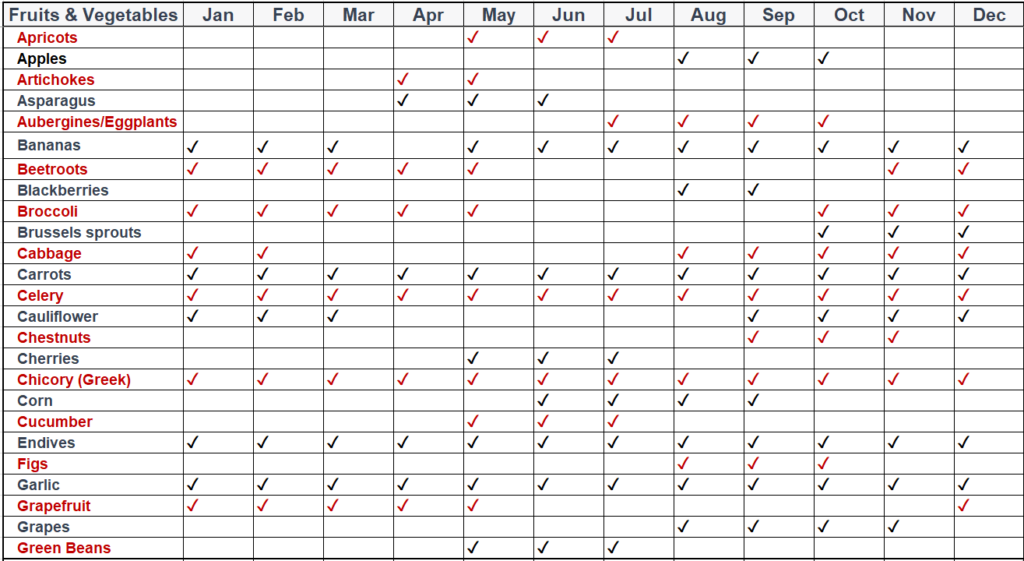
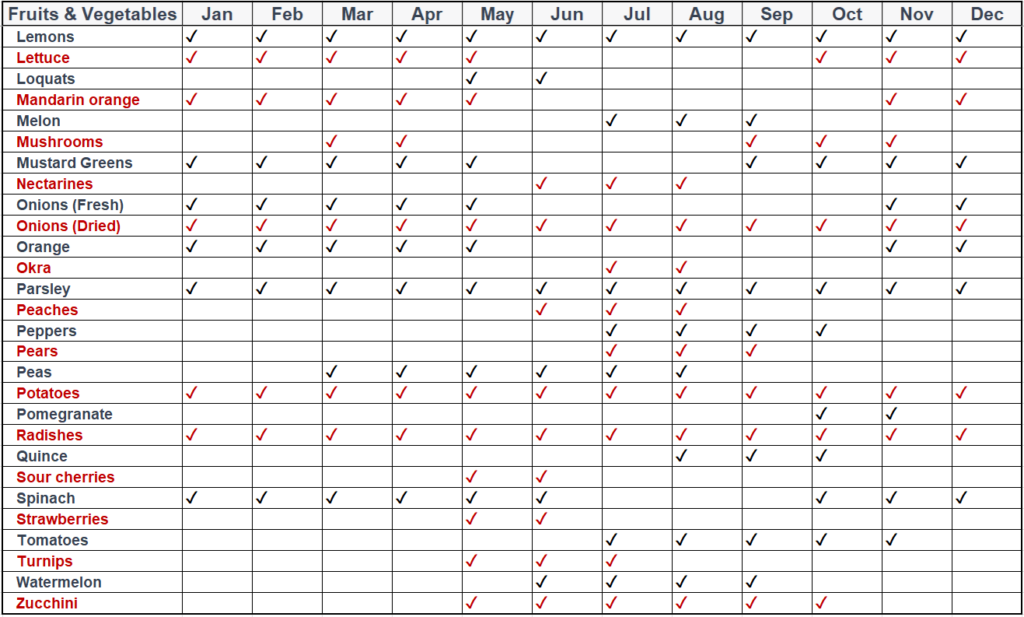
Tips for Shopping Seasonal in Greece
1. Explore Local Markets for Fresh, Seasonal Produce
For a true taste of Greece’s seasonal bounty, visit a laiki agora (farmers’ market). These weekly markets offer fresh, locally sourced produce directly from the producers, providing unbeatable prices. They are also an immersive cultural experience, giving you a glimpse of local life and the opportunity to purchase a variety of goods, from fruits and vegetables to fish and clothing. Laiki agoras are typically held in designated areas like squares or streets, from early morning until early afternoon, with portable stalls set up for a few hours each week.
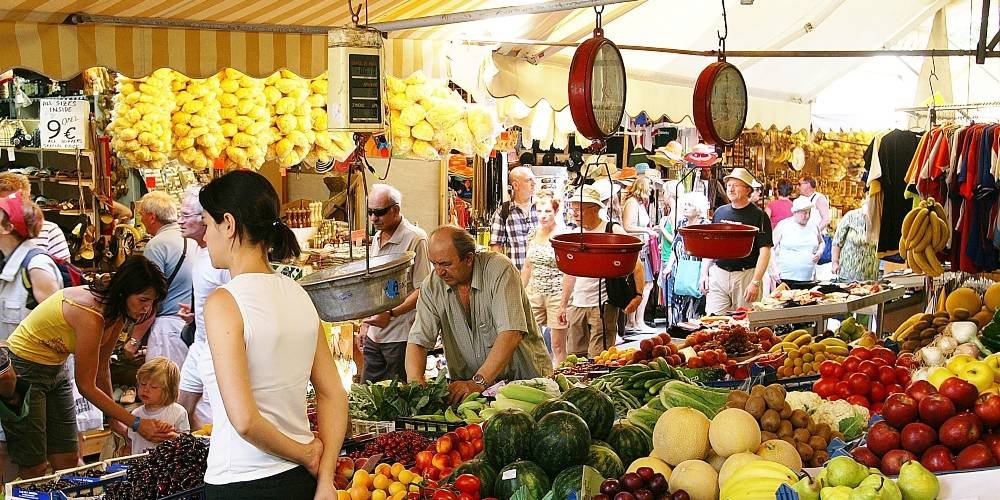
where fresh, seasonal produce meets local culture and tradition. Image Credit: biscotto.gr
2. Know Your Labels
Look for PDO (Protected Designation of Origin) and PGI (Protected Geographical Indication) certifications on packaging to ensure authenticity. For example, the Tsakonian eggplant and apples of Zagora are PDO products, guaranteeing their origin and quality. For a comprehensive list of Greek PDO and PGI products, visit the Greek Ministry of Rural Development and Food.
3. Plan Your Meals Around the Seasons
Incorporate seasonal staples into your recipes. For instance, enjoy gemista (stuffed tomatoes and peppers) in summer, and bake a zesty orange cake in winter when citrus fruits are in season.
So, next time you’re planning a meal or heading to the market, let the seasons guide your choices—because nothing beats the taste of fresh, local, and in-season produce. Bon appétit, or as they say in Greece, καλή όρεξη!
*Table Data sourced from the Physics Department of the National Technical University of Athens. For more information, visit here.


